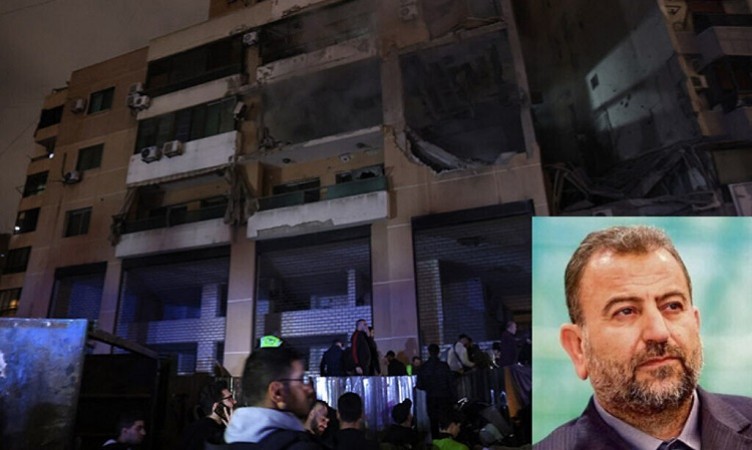
BEIRUT: In response to the targeted strike in Beirut that resulted in the death of Saleh Arouri, a prominent leader of Palestinian group Hamas, Israel has increased its security readiness amid concerns of potential escalation with Hezbollah. The airstrike, widely attributed to Israel, has raised tensions in the region and amplified the risk of a broader conflict in the Middle East.
The killing of Saleh Arouri, marking one of the most senior Hamas figures to be eliminated since the recent Gaza conflict started, has provided a morale boost for Israelis still recovering from Hamas' October 7 attack. The ongoing resistance in Gaza, coupled with the holding of numerous hostages by militants, has kept the situation tense.
However, the long-term implications of Arouri's assassination on the conflict remain uncertain. Israel has targeted several high-ranking Hamas leaders in the past, only to witness their swift replacements. Furthermore, the strike in Hezbollah's stronghold in southern Beirut raises concerns that the sporadic clashes along the Lebanese border could escalate into full-scale warfare.
The response from Hezbollah's leader, Hassan Nasrallah, holds significant weight in determining the course of events. Nasrallah, who has led Hezbollah since 1992 after the death of his predecessor in an Israeli strike, has previously pledged retaliation for any Israeli actions against allied militant leaders in Lebanon. His upcoming speech at 6 p.m. (1600 GMT) is highly anticipated for insights into their response strategy.
Despite the exchange of fire between Hezbollah and the Israeli military along the Israeli-Lebanese border during the Gaza conflict, Nasrallah has displayed reluctance to escalate tensions further. This hesitation might stem from fears of a repetition of the destructive 2006 war, during which Beirut and southern Lebanon were heavily bombarded by Israel.
Israeli authorities have refrained from officially commenting on the airstrike that killed Arouri. Rear Adm. Daniel Hagari, an Israeli military spokesperson, stated that they are prepared for any potential scenario.
The United States is actively working to prevent the situation from worsening by deploying additional military assets to the region. Secretary of State Antony Blinken is expected to visit the region this week as part of diplomatic efforts.
Notably, Israeli Prime Minister Benjamin Netanyahu and other officials have consistently issued threats to eliminate Hamas leaders, irrespective of their location. The October 7 attack launched by Hamas from Gaza into southern Israel resulted in casualties and the taking of hostages.
While Israel claims to have targeted mid-level Hamas figures within Gaza previously, this marks the first instance in the recent conflict where they have extended their operations into another country to eliminate top Hamas leadership. Saleh Arouri served as the deputy to Hamas’ supreme political leader, Ismail Haniyeh, and managed the group's activities in the Israeli-occupied West Bank. He also played a significant role as a liaison with Hezbollah. The U.S. State Department had labeled him a terrorist and offered a $5 million reward for information leading to his capture.
In response to the attack that claimed Arouri's life along with six other Hamas members, including two military commanders, Ismail Haniyeh stated that Hamas remains "more powerful and determined." He emphasized that those lost had left behind strong successors to continue the cause.